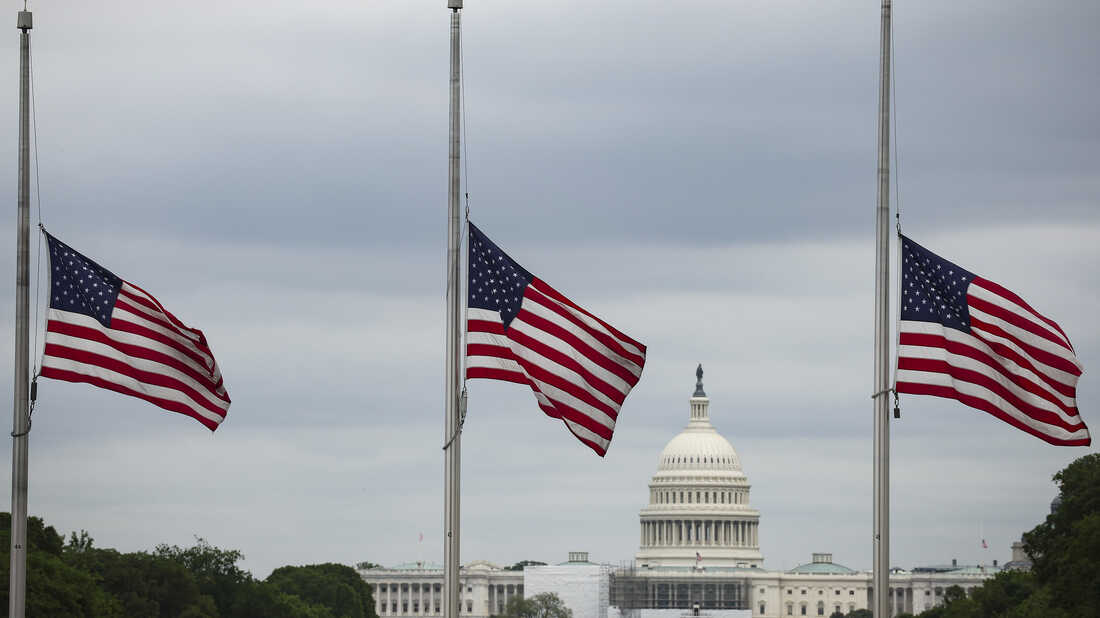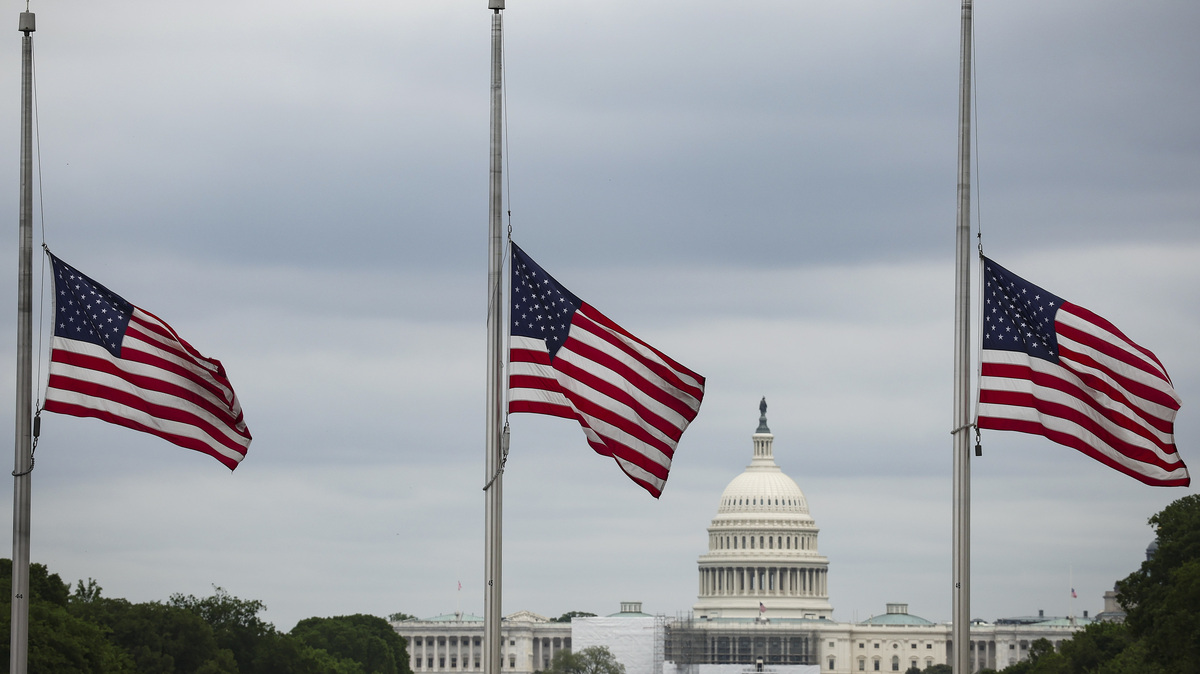
Flags at the base of the Washington Monument fly at half staff to mark one 1 million deaths attributed to COVID-19. Win McNamee/Getty Images hide caption

Flags at the base of the Washington Monument fly at half staff to mark one 1 million deaths attributed to COVID-19.
Win McNamee/Getty ImagesAs the U.S. marks one million people dead from COVID-19, scientists suggest that nearly one third of those deaths could have been prevented if more people had chosen to be vaccinated. NPR's Selena Simmons-Duffin reports.
And even though the unvaccinated continue to make up a majority of COVID-19 cases and related hospitalizations, the number of Americans who say they won't get a COVID shot hasn't budged in a year. NPR's John Burnett spoke to a few of them.
Email us at
This episode was produced by Brianna Scott, Brent Baughman, and Gabe O'Connor. It was edited by Ashley Brown. Our executive producer is Cara Tallo.

 Live Radio
Live Radio